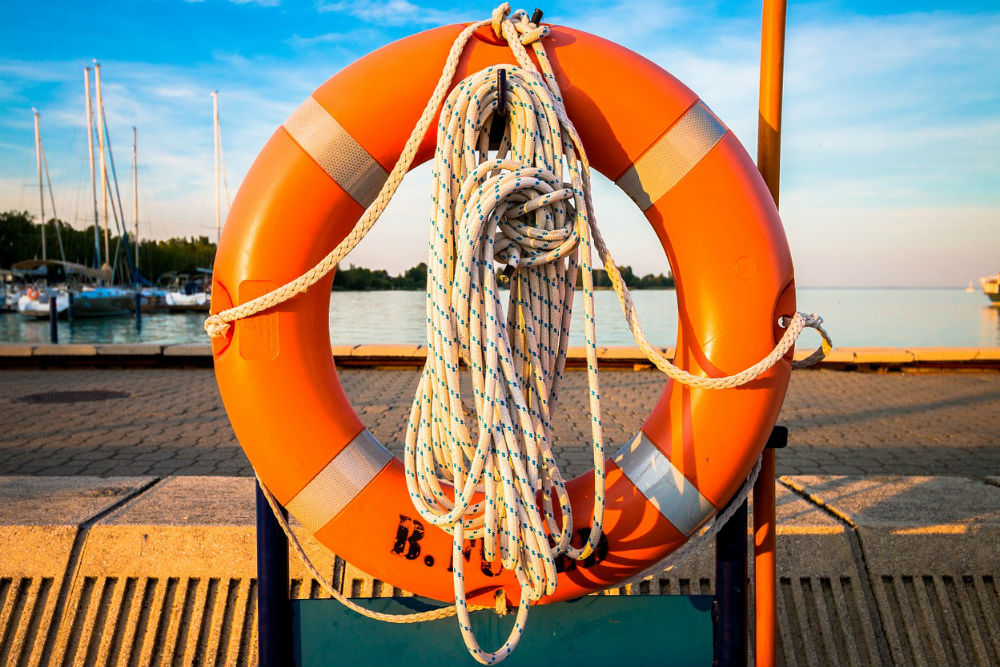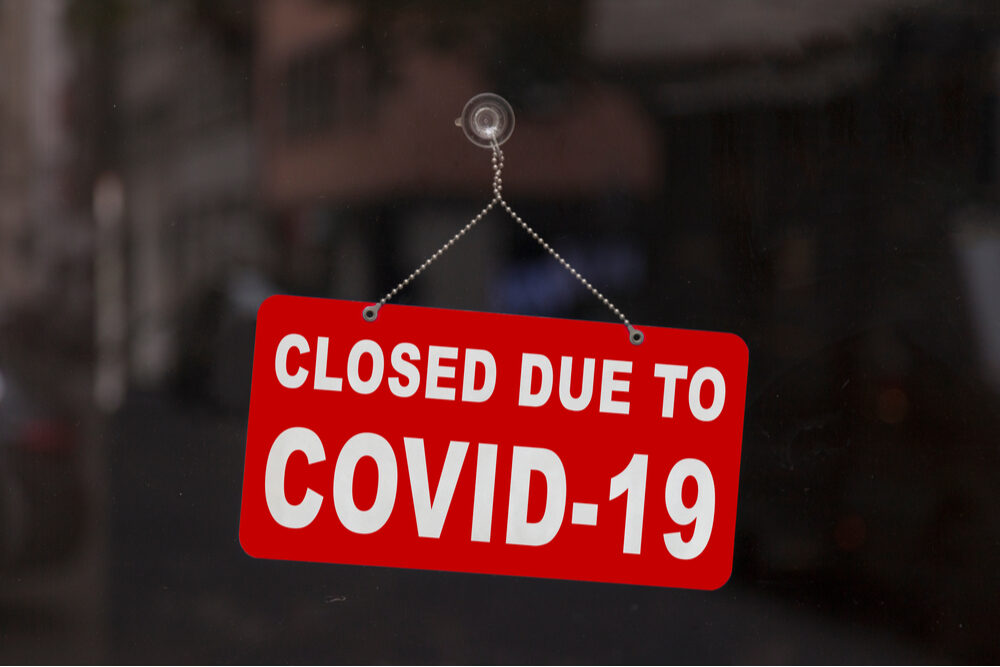How to Buy Travel Insurance: What It Covers, When You Need It
 Photo: Pixabay
Photo: Pixabay UPDATE—November 7, 2023: It’s important for travelers to be aware that most travel-insurance policies do not cover loss due to war. Many insurance providers did cover claims due to the October 7 attack on Israel by Hamas because they deemed it a “terrorist incident”—but the ongoing fighting is not a covered reason for loss under policies purchased on or after that date, when it became a foreseeable event. For more details, see “Can I call off my trip for any reason and be reimbursed?” below.
Travel insurance can be confusing—which is why we’ve received countless questions about it from readers. So we’ve created this primer that lays out the basics of travel insurance, including when you need it—and when you don’t.
What is travel insurance anyway?
Essentially, travel insurance serves two purposes, both financial. The first is to protect the investment you’ve already made—the cost of your trip—in the event that you need to cancel. The second is to cover future potential costs because of unforeseen events—for example, the cost of medical evacuation, should you get injured during your trip.
What does travel insurance cover?
Travel insurance policies cover some or all of the following (“comprehensive” policies cover most or all of these situations):
- Trip cancellation or interruption (if the reason for doing so is one allowed by that policy)
- Medical expenses, and sometimes evacuation (transportation to an appropriate medical facility)
- Expenses related to a trip delay and lost, stolen, damaged, or delayed baggage
- A lump-sum payment if you’re injured or killed while traveling
- Emergency assistance
- Financial default of the travel supplier
A policy kicks in only if your situation fits within its specific conditions (those are the pages of fine print at the back of every policy). You can’t, for instance, get your money back if you decide to cancel because your cousin dies; that’s because most policies cover cancellation due to the death of only certain close family members.
Here are three examples of how travel insurance can help. These are scenarios that a traveler might run into—and ways in which the right travel insurance policy could protect the traveler in each scenario. Remember that every policy’s benefits are different:
Beth is headed to the Caribbean during hurricane season, since she knows that prices are lower at that time of year and that the chance of a storm hitting any particular island is low. But a week before she leaves, Hurricane Peter wreaks havoc at her beachfront resort.
Since Beth purchased an insurance policy with trip-cancellation coverage before the storm was named and her hotel is now uninhabitable, she can cancel the trip and get all of her money back.
Halfway through a hiking trip in the Alps, Joe slips and falls, breaking his ankle.
Joe’s travel insurance policy has a medical expense limit of $10,000, so it covers some—but not all—of his medical bills. Because he can’t continue with his trip, his trip-interruption benefit reimburses him for the unused portion of his prepaid expenses.
While Amy is walking from the train station to her hotel, a thief steals her luggage.
Amy’s insurance covers the value of the items in her luggage, up to her benefit limit of $750. Too bad she didn’t leave that diamond necklace at home, though; her policy will only reimburse up to $500 total for jewelry and electronics.
Do I really need travel insurance?
It depends on whether you’re making large nonrefundable advance payments, and whether you’re concerned about potential medical bills.
Are you reserving rooms at hotels that let you cancel up to 24 hours before check-in, and renting a car that you don’t have to pay for until you show up at the counter? In that case, don’t bother with a comprehensive policy that covers cancellation, since you’re not out-of-pocket for many expenses. (Even so, you may still want medical insurance, which is very affordable; you can get quotes for this coverage by entering $0 as your trip cost when researching policies online—see “Which policy should I buy?” below.)
Or are you prepaying for most of the pricey elements of your trip—hotels, private guides, transportation, a cruise—which often means that your deposit and subsequent payments are nonrefundable? In that case, you probably want travel insurance. When you choose a policy, consider the specific reasons you may end up filing a claim. For instance, most policies will cover Covid-related medical bills, but not all of them will cover the costs of isolating at your destination because you’re sick but not hospitalized.
Don’t I already have insurance?
You might. Some—but not all—medical plans, homeowners’ or renters’ insurance policies, and credit cards offer benefits to travelers. But Medicare, for instance, doesn’t cover members when they are overseas (though some Medigap plans do), and most health plans won’t cover evacuation (meaning, transportation to an adequate medical facility), which can be expensive if you’re somewhere remote. Check with your insurers to see what’s included.
Some premium credit cards include a level of protection. This coverage probably isn’t itself worth the card’s annual fee—but if you already have such a card, you should know what benefits it offers so that you don’t pay for redundant coverage. For example, Chase Sapphire Reserve (one of Wendy’s favorite credit cards for travelers) has some good insurance benefits, but with set limits (so, for instance, you can get back only up to $10,000 per traveler and $20,000 per trip if you cancel a trip you paid for with the card—even if your African safari cost your family of four $15,000 per person).
Some travel firms and tour operators also include certain insurance coverage in all of their trips. Don’t waste your money buying coverage that’s already built into the cost of your trip. However, don’t assume that this coverage is comprehensive; depending on your circumstances, you might want to buy an additional policy.
How much does travel insurance cost?
Premiums for a comprehensive policy range from about four to 15 percent of your total trip cost. So if you and your spouse are spending $20,000 total on a week in France, expect to pay $400 to $1,500 per person for travel insurance.
Each premium is calculated based on the length and cost of the trip, where you’re going, and how old you are. For travelers above age 50, policies get significantly more expensive, while children can often be added to a parent’s plan for free: Travelex’s Travel Select Plan allows you to add any children under 18 to a parent’s or grandparent’s plan at no additional cost, while most Travel Guard plans include one child under 18 for every paying adult.
At what point during my trip planning should I buy travel insurance?
Purchase your policy as soon as you put down a deposit toward your trip. That’s because certain desirable benefits (e.g., coverage for cancellation because of pre-existing medical conditions, coverage for financial default of the travel supplier, a cancel-for-any-reason upgrade) may kick in only if you buy your policy within 14 days or so of your initial trip payment. This is usually defined as the first payment that will go toward your trip cost and could be included in an insurance claim, not the separate planning fee that some travel designers charge.
Your premium will be lower if you cover only your nonrefundable costs; however, not covering the full amount of your payment(s) may invalidate coverage for pre-existing conditions. Requirements vary from one insurance provider to the next, so read a policy carefully when calculating the amount of coverage you need.
What is third-party travel insurance?
Some travel companies—cruise lines, tour operators, and the like—sell their own insurance or “protection” policies, whereas third-party insurance is sold by someone other than the travel company that is operating your trip. Third-party policies are usually a better choice: They pay you back in cash rather than trip credits, they can protect you in case the travel company goes out of business, and you can choose the plan with the coverage that best fits your specific circumstances.
My travel planner recommends that I purchase a policy through a specific insurer; should I follow their advice?
Some travel planners, tour companies, and outfitters have relationships with a particular insurance provider. They might push you to buy a certain type of insurance because they’ll earn a commission; on the other hand, their relationship with that insurer could benefit you if you have to file a claim. Wendy has seen many cases where Trusted Travel Experts on The WOW List, thanks to their relationship with a particular insurer, have been able to act as advocates for their travelers and get their claims paid.
Should I cover the cost of my flights too?
That depends. If you have to cancel your trip, you can usually put the cost of any unused airline tickets toward a future flight, sometimes minus a change fee. Calculate how much your premium will increase if you insure your flights; if the difference is less than the airline’s change fee, it’s worth insuring the flights. (You might also want to insure flights on any local carrier that you aren’t likely to fly with again—in which case a credit toward future travel would be worthless.)
What does it mean if a travel medical insurance plan is primary or secondary?
“Primary” means that the plan pays any bills first, without having to go through your home health insurance provider; “secondary” means the plan will only cover whatever you owe after you’ve filed a claim with your health insurance provider. You’ll typically get a bit more coverage per dollar with a secondary plan—but you’ll have to deal with more paperwork if you file a claim.
I have a medical condition. Will expenses related to it be covered?
Pre-existing conditions are generally excluded from coverage—but some plans will waive that exclusion if you purchase them soon after making the first payment on your trip (generally within 7 to 21 days of that initial deposit). You also usually have to insure the entire nonrefundable cost of your trip, including flights. Without coverage for pre-existing conditions, you’re on the hook for any expenses related to a condition that wasn’t medically stable at the time you booked.
How does travel insurance handle Covid?
Pretty much like any other illness. Most comprehensive policies will cover you if you test positive right before your trip and have to cancel, or if you come down with Covid during your trip and incur medical expenses. If you are sick enough to be hospitalized, a Medjet membership will get you home. If your symptoms are mild, some insurance policies will cover self-isolation costs under your “Trip Delay” benefit. There are often both daily and total limits to this benefit, so you may not be reimbursed for all of your additional hotel, meal, and airfare costs.
What if I’m hurt doing an adventure activity (say, bungee jumping)?
Most policies won’t cover injuries you receive while taking part in certain “hazardous activities”—a category that can include everything from skydiving and rock climbing to scuba diving and heli-skiing. Some plans will allow you to pay a higher premium to cover these activities. (Dive Accident Insurance from the Divers Alert Network, for instance, covers most bills related to scuba-diving accidents.)
Will insurance pay for me to come home if I get sick or injured on the road?
Not usually. Most policies will pay for transportation to what they consider to be the nearest adequate medical facility (such transport is known as medical evacuation)—but that could be thousands of miles from your loved ones and the doctors you trust. If you want to know that you can get home, you’ll need to purchase additional coverage from a company such as Medjet, which arranges and pays for transportation from a hospital in your destination to one back home. For more details, read What Medical Evacuation Coverage Do You Need?
Can I call off my trip for any reason and be reimbursed?
No. Each policy defines the allowable reasons for which you can cancel and get your money back. To cancel your trip because of a terrorist attack, for instance, the attack typically has to happen in a city listed on your itinerary—not just anywhere in the country you’re visiting.
You can purchase additional “Cancel For Any Reason” (CFAR) coverage, but it’s pricey, and even then, you’ll generally only be reimbursed 50% to 75% of your trip cost. As with pre-existing condition benefits, you usually have to purchase CFAR coverage soon after your initial trip deposit; you also have to insure the total cost of the trip, and you must cancel more than 48 hours prior to your departure. Read more about CFAR coverage in our article “Cancel For Any Reason” Travel Insurance: What It Is and How It Works.
What if the State Department issues a Level 4 “Do Not Travel” advisory for my destination, and I want to cancel my trip?
Standard travel-insurance policies rarely cover cancellation due to war, border closures, lockdowns, or government travel warnings/advisories. (But also note that the 21 countries currently with a Level 4 advisory are not common travel destinations right now, but rather places like Russia and Afghanistan.) Some insurance providers offer “Cancel For Any Reason” (CFAR) coverage; for the pros and cons of that, read “Cancel For Any Reason” Travel Insurance: What It Is and How It Works. If security is a concern, consider a MedjetHorizon membership, which includes access to a Crisis Response Center if at any point during a trip you feel that your safety may be threatened—because of a political incident, terror attack, or other crisis.
How do I protect myself against the travel company I’m working with going out of business?
If you paid by credit card—which we always recommend—your first step should be to file a billing dispute with the credit-card company. The Fair Credit Billing Act stipulates that you are protected against charges for goods or services you do not receive. If you can prove that’s the case, those charges will be credited back to your account.
Some third-party travel insurance policies also cover trip cancellation due to financial default—meaning that an airline, tour operator, cruise line, or other supplier ceases operations, leaving you without a trip. (Travel insurance usually will not cover you if the company declares bankruptcy or if you booked via a travel agency or other intermediary that goes out of business.) Click here to read more about insurance coverage for financial default. As with pre-existing medical conditions, financial default clauses often require that you purchase the insurance soon after making your first payment, and the coverage typically doesn’t start until 10 to 14 days after you’ve purchased the policy.
Here are a couple of examples: Let’s say you’ve booked a Mediterranean cruise and flights to Venice, where you’ll board the ship. The day after paying your initial deposit, you insured the entire purchase with a carrier that protects against financial default. Two days before you’re due to leave, your airline goes belly-up, and all other flights to Venice from your hometown are booked, so you’re unable to make it to the ship. Your insurance provider reimburses you for the costs of your flights and the cruise you missed.
In another scenario, let’s say you’ve booked a trip to see the Pyramids in Egypt. A month after putting down a deposit on the trip, it occurs to you to insure your considerable investment. A few weeks before your departure, your Egypt tour operator ceases operations, and it turns out that none of your in-country arrangements have been confirmed or paid for. Even though your insurance policy covers financial default, it won’t pay out in this case because you didn’t purchase the policy within 15 days of your initial trip payment.
Should I pay for the car-rental upgrade to my comprehensive insurance policy?
Pay attention to when that benefit kicks in; coverage through your rental agency may be better tuned to the likeliest risks in your destination. For instance, when I rented a car in Iceland, my Travelex policy upgrade would cover me only for damage due to collision, vandalism, windstorm, fire, hail, or flood. Hertz’s options, on the other hand, included coverage for damage from gravel or ash—both far more common than vandals in Iceland.
I travel frequently. Is an annual travel-insurance plan a better choice than individual policies for each trip?
Many annual plans do not cover trip cancellation and thus are missing the coverage you want when you have significant nonrefundable expenses. Also keep in mind that annual plans limit you to the same coverage for all of your trips. For example, say you take a few shorter trips a year that cost $5,000, and one large trip that costs $25,000. An annual plan with a trip-cancellation benefit limit of $15,000 means that you’ll be overinsured for your shorter trips, and underinsured for your larger one.
Which policy should I buy?
It would be so easy if one size fit all—but it doesn’t. To know which policy is right for you, think about what keeps you up at night. Are you most concerned about testing positive for Covid a day before your trip? Or about having to fly home early because a loved one there falls ill? Or deciding to cancel your trip because of a terrorist attack at your destination—or even one in an entirely different country?
Several websites allow you to input your details and compare multiple policies at once, narrowing in on which one is right for you: Check out TravelInsurance.com, InsureMyTrip, SquareMouth.com, and, if you just want medical coverage and don’t need cancellation protection, Medical.TravelInsurance.com. Before you purchase any policy, though, it’s important to get on the phone with that insurer and ask how their policies would work, if the hypothetical reasons why you’re considering travel insurance (e.g., you end up hospitalized with Covid in your destination) were to actually occur.
The insurance that we’ve received the best traveler feedback about is Travelex’s Travel Select policy. It operates as primary coverage, allows a wide range of reasons to cancel, and, based on the feedback we’ve heard, is relatively likely to reimburse you quickly. This policy must be purchased at least 14 days before your trip starts (this is waived for last-minute trips if you are still within 15 days of your first trip payment). Travelex also offers an optional “Cancel for Any Reason” upgrade that must be bought within two weeks after making your first trip payment.
Transparency disclosure: Medjet is a sponsor of WendyPerrin.com. That’s because Wendy has had a membership herself since her kids were little and believes in it. Travelex Insurance Services pays WendyPerrin.com a referral fee when a policy is purchased through this link. Wendy chooses Travelex because it has generous policies (see above) and good customer service. (Travelex Insurance Services is not related in any way to the defunct currency-exchange business Travelex.) When you use the links in this article for your insurance/assistance purchases, it allows us to continue the rigorous and honest work we do on behalf of consumers, as well as to continue our Get a Personalized Trip Recommendation service. Thank you for your support.
Be a smarter traveler: Sign up for Wendy’s weekly newsletter to stay in the know. Read real travelers’ reviews, then use the black CONTACT buttons on Wendy’s WOW List to reach out to the right local fixer for your trip.












Travel insurance from Travelex or similar vs. Chase Sapphire card insurance.
We are about to put down a deposit on a significantly costly 2022 2 week trip in Morocco , using a WOW expert, and now deciding on Travel Insurance.
We use the Visa Chase Sapphire card for all travel expenses, deposits, air, everything but Tips! We used them in Kenya 3 years ago where storms caused some accomodation changes and they were excellent in returning monies for a lost night.
Do you think the Sapphire card insurance coverage is sufficient to replace a good Travel Insurance plan (we do have Medjet insurance as well)
Chase’s Sapphire Preferred card does include coverage for trip cancellation or interruption–if you fall sick before or during your trip, for example. Do keep in mind, though, that Chase covers only up to $10,000 per person and $20,000 per trip in pre-paid, nonrefundable expenses. If you’re spending more than that, they will not reimburse you in full.
What Chase does not include is coverage for medical expenses. For that, you’ll want to purchase a separate travel insurance policy. Since you already have the trip cancellation/interruption coverage through Chase, you don’t need a comprehensive policy that covers both cancellation and medical bills. Instead, you can use a site such as travelinsurance.com to look for a less expensive policy that is targeted to medical expenses.
Medjet is a useful layer on top of travel insurance: While the latter covers the cost of getting you to a hospital and getting treated there, Medjet will pay for you to be flown from that hospital in Morocco to one close to home. Travel insurance generally doesn’t cover evacuation back to the U.S.
Do you like MedJet better than Global Rescue? We switched last year because GR will pick up from the “field” (e.g., in remote areas of Botswana, where we went last summer, or in Antarctic (where we’re going this winter)), whereas MJ picks up only from a hospital and not from Antarctic… Very much value your opinion as we need to renew this week. Thanks!
Brook here, Wendy’s deputy. We recommend a combination of travel insurance (which covers evacuation from the field) and Medjet. Most travel insurance policies cover getting you from remote Botswana–or from a cruise ship headed to Antarctica–to the nearest hospital. In fact, most tour operators in Antarctica require that travelers have at least $1 million in evacuation insurance for exactly that reason.
We’ve heard that if you call Global Rescue because you’re in distress in remote Botswana, they will come get you, but they may ask for your credit-card information. And if they determine that your injury/illness would not have resulted in “serious permanent injury or death” had they not come to get you, you could be on the hook for that evacuation bill. If you have travel insurance and Medjet, the insurance pays for your transfer (ambulance, air ambulance, etc.) from the field to a medical facility, and then Medjet pays for you to be brought to a medical facility of your choice close to home.
In the case of a cruise ship, Global Rescue’s terms and conditions specifically state that you must disembark before they rescue you. (Typically, a travel insurance’s evacuation policy will send a helicopter if the ship can’t make it back to port in time. If things are truly dire, the coast guard will get involved.)
So we believe that Medjet best fills the gap between travel insurance’s evacuation coverage and the desire to be hospitalized close to home. Does that make sense?
Anyone have experience with World Nomads for trip insurance?
We went to Hawaii in January and traveled there on Hawaiian Airlines. While booking the trip, I checked the box to accept their travel insurance and a policy was issued by Allianz. That’s a mistake I won’t make again. During the trip, my wife developed a severe ear infection and was put on antibiotics and told not to fly until January 11th. We were scheduled to leave on the 10th. I contacted Allianz and was told that the delay would be covered by insurance since it was for a covered medical reason. The airline charged $200/person to reschedule the flights (outrageous), plus we had an extra night in the hotel, extra day on the rental car and meals. I submitted all of the documentation to Allianz and waited. Finally, they approved the coverage, but for less than 1/2 the amount claimed. Basically, they said that policy only covered the airline portion of the additional cost. Fortunately, our Citibank American Airlines Platinum MasterCard will cover the rest, but if it were not for that card, we’d be out of luck. So, the lesson we learned the hard way is:
1. Never accept the airlines travel insurance, and
2. Make sure that you use a credit card with travel benefits like the one we used.
For our upcoming trip to Scandinavia, we took out insurance through Exeter International, who offers insurance through Travel Guard at a nice discount. I checked that policy and it does cover most things that could occur. Per your recommendation, we have also signed up for a MedJet policy – just in case. Another thing we learned is that there’s no need to insure the full trip through a private insurer like Allianz or Travel Guard. Since our credit card covers up to $5,000 per person, all we have to do is cover the amount of the trip above $10,000 which ends up being a substantial savings (I’m now 72 and the rates are high for senior citizens).
Great article as usual, Wendy!
We are traveling in 5 weeks to SE Asia and the Maldives with a TTE and using Travelguard. We have used them for many years. We have pre existing conditions and use the gold plan with upgraded evacuation since Cambodia, Laos and Maldives have subpar medical care if something serious happens. We have been extremely happy with them as in the recent past on a trip to Mexico my husband had a medical issue. We were also in Indonesia diving ten years ago and I had DCS and thank God we had not only Travelguard but Dan insurance for diving. I needed an air ambulance to Singapore for recompression, hotel for a week since you can’t fly after recompression and they paid for everything including for biz class home. The bill would have been over 100K otherwise. We would never ever travel without some type of trip insurance.
Further to Medicare … Medicare Part C plans, also known as Medicare Advantage, are administered directly by insurance companies and provide ALL of the benefits in Medicare Parts A and B. Some also include Part D pharmacy benefits. It’s quite possible to get a plan which costs $0 because they price their basic premiums to match what is already being taken by one’s Part B Medicare premiums (and it’s transparent to the user).
Being a public/private partnership, the companies need to compete by adding services to the basic requirements. For the traveller this means most of the plans (maybe all?) do cover international medical expenses with a minimal deductible (mine is $75). Plus, not being a trip by trip plan (it’s an annual plan), pre-existing conditions become essentially not a factor.
We add a $200-250 annual Medevac plan, which includes the travel assistance angle, and are comfortably covered as a general matter. We self-insure things like interruptions, delays, and baggage.
That leaves only trip cancellation and we purchase individual trip cancellation insurance as needed on a case by case basis. We usually get in writing from major suppliers that in the event of cancellation we can get a better deal than their standard (such as rebooking at no additional cost). The medium and smaller operators are often more than willing to do so.
Any advice for travelers traveling on flights to the U.S. from the Middle East? With low limits on coverage for items like cameras and electronics, which must now be packed in your luggage vs. carry-on, are there supplemental insurance plans available to cover these items?
I would like to add a comment you did not mention about MedJet Assist, which I carry. Not only are the travel expenses of the injured person to fly to the hospital of his choice covered, but those of a companion as well. Frequently a companion’s trip is disrupted, and the cost of the companion to live in a location close to a hospital far from home can be both disruptive and expensive,. The value of two people returning to a home location should then be considered.
Hi Elaine,
Medjet will pay for your travel companion’s flight home in some circumstances, but not all. Sometimes Medjet brings a member home in an air ambulance (a medically outfitted private plane); when that’s the case, a companion is welcome to accompany the patient–though it might be a tight fit (this isn’t like riding in Larry Ellison’s private jet). If the patient is healthy enough, Medjet will pay for them to take a commercial flight home in business class, accompanied by a medical escort. When that’s the case, Medjet will pay for a travel companion’s economy ticket; the companion is responsible for the difference in fares if they want to upgrade to business class as well.
Brook Wilkinson
Reporter and Traveler Advocate
WendyPerrin.com
Travel Guard has a “hospital of choice” option which is slightly more expensive than regular evacuation coverage. Sometimes it can be purchased as a stand alone but is included in the platinum plan . If you have the “hospital of choice”, I don’t think you need medjet.
Hi Joe,
Yes, Travel Guard does have an optional “hospital of choice” upgrade that can be added to Gold or Platinum plans for an additional cost. This upgrade allows the insured to choose to be taken to any facility of their choice with adequate medical care (so in other words, the best hospital close to home), but only if a doctor deems the evacuation to be “medically necessary.” Medjet, on the other hand, will fly you to a hospital near home as soon as you’ve been hospitalized and are judged fit to fly. They don’t have fine print about whether an evacuation is “medically necessary” or whether the current facility is providing “adequate medical treatment.” If you say you want to go home, and a doctor says you can, they’ll take you.
Brook Wilkinson
Reporter and Traveler Advocate
WendyPerrin.com
Great work! It hits all of the important notes in this industry. This primer should be required reading for travel agents! Until only recently, travelers’ only options were the “one-size-fits-all” plans offered by a single insurance company as a “YES or NO” check-box at checkout or by a travel agent. Travelers today have a choice and can compare and buy travel insurance on their own through comparison sites–think hotels.com or kayak for travel insurance! It’s the only way to price shop and compare plans across multiple insurance companies. It also empowers the consumer to get the right benefits at the right price for every trip, every time!
I also have AMEX Platinum, I am interested in the response to Kathy’s post. Is my wife, who does not have the platinum card covered?
I always love your posts. We are going on a trip to Morocco this fall, so this info on travel insurance is very helpful. We love MedjetAssist. Fortunately, we haven’t had to use it yet.
I believe American Express Platinum Card holders automatically have Global Assist included in the annual fee, where one would be returned (flown) home if ill or injured in a faraway destination? And I think that does not need to be a trip planned by American Express, but rather any trip? I am a platinum card member, and prefer not to to pay for MedJet if I am already covered by a similar plan on AmExp, but even asking AmExp, never sure about this. Your comments on the AmEx plan?
Thank you Kathy
Hi Kathy,
Amex’s Global Assist is a separate program from Medjet: It’s a hotline that you can call if you want advice before your trip, or need help in certain situations while you’re traveling. For instance, Global Assist will help you replace a lost passport, or find the nearest ATM. But it definitely won’t do anything close to flying you home if you’re ill or injured.
Thanks for writing,
Brook Wilkinson
Reporter and Traveler Advocate
WendyPerrin.com
If you are travelling to a country where getting a visa might be tricky, be sure to understand what your insurance covers if the visa is not issued. Recently going to Iran, there was a delay in getting the visa resulting in thousands of dollars of flight changes, that my insurance would not cover.